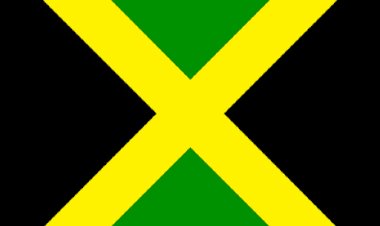West African Woman Attempts Suicide After U.S. Deportation to Non-Native Country
ACCRA, Ghana — A West African woman deported by the United States to Ghana recently attempted suicide in custody, and several other deportees have been secretly transferred, according to Ana Dionne-Lanier, an attorney for one of the deportees. Dozens of deportees have been sent to Africa from the U.S. since July after the Trump administration […] The post West African Woman Attempts Suicide After U.S. Deportation to Non-Native Country appeared first on Capital B News.


ACCRA, Ghana — A West African woman deported by the United States to Ghana recently attempted suicide in custody, and several other deportees have been secretly transferred, according to Ana Dionne-Lanier, an attorney for one of the deportees.
Dozens of deportees have been sent to Africa from the U.S. since July after the Trump administration struck largely secretive agreements with at least five African nations — including Eswatini, Rwanda, and South Sudan — to take migrants under a new third-country deportation program.
One of Dionne-Lanier’s client has been forced into hiding in his home country despite the agreement between the U.S. and the Ghanaian government that stated deportees would not be sent back to their home countries due to fears of persecution, torture, and death.
As the Trump administration has ramped up deportations, some U.S. courts have blocked the return of migrants to their countries of origin because of safety concerns. The administration responded by forging deals to send them to so-called third countries willing to accept deportees under special diplomatic agreements. In these agreements, the countries to which these deportees are sent are tasked with protecting their safety; however, Dionne-Lanier stated that there is no mechanism in place to enforce this.
Black migrants in the U.S. face unique and disproportionate risks under current immigration enforcement policies. Studies have shown that Black immigrants are deported at a rate roughly four times higher than their overall presence in the undocumented population would predict.
They also experience elevated rates of arrest and solitary confinement while in Immigration and Customs Enforcement custody. One analysis found nearly a quarter of people held in solitary were Black, even though Black migrants make up less than 4% of ICE detainees. These disparities reflect not just enforcement priorities but also the intersection of racial profiling, criminalization, and lack of adequate legal protections, experts have said, making deportation agreements like the one between the U.S. and Ghana particularly consequential for Black migrant communities.
In hiding, Dionne-Lanier’s client provided a detailed account of conditions for this latest group of 19 migrants, exposing the human toll of the U.S.-Ghana deportation agreement.
After arriving in Accra on Nov. 5, the deportees were initially held in a hotel with limited phone access. Dionne-Lanier said this allowed the group to maintain communication with their families and lawyers, but then they were sent to a detention camp without access to phones.
The emotional consequences were severe and abrupt. One of the women deported attempted to take her life and was then hospitalized, Dionne-Lanier said. “The risk of being removed back to her own country was too much for the person.”
Within days, her own client was transferred from the camp, taken to the airport, and put on a flight back to his country of origin. “He’s in hiding currently, and he does not feel safe in his home country,” she said.
When her client entered the U.S., he won a claim of “withholding of removal” before an immigration court. This protection is granted to individuals who can prove that, if deported, they face a clear probability of persecution or torture in their home country. Under U.S. and international law, this status prohibits the government from returning individuals to places where their life or freedom would be threatened.
But under these so-called third-country deals, migrants have been removed from the U.S. to nations where they have neither ties nor adequate legal protections.
Ghanaian officials have defended the deportation agreement as a gesture of pan-African solidarity. President John Mahama has said Ghana accepted deported West Africans “under exceptional circumstances, in line with Ghana’s long-standing Pan-African ideals and unwavering commitment to regional solidarity,” adding the country acted out of “moral responsibility” and “humanitarian principles” to offer temporary refuge for those in distress.
Yet critics and legal advocates argue the program has resulted in constitutional violations, a lack of transparency, and grave risks for the deportees. In Ghana, activists have sued the government. The case is being heard before the Ghanaian Supreme Court.
The Supreme Court case, brought by Democracy Hub, challenges the agreement for violating Ghana’s constitution and potentially international law.
Despite official U.S. assurances that deportees would be protected in Ghana, real-world outcomes tell a different story. “His fear of torture and persecution is still very real,” Dionne-Lanier said of her client. “The lack of oversight leaves the most vulnerable at real risk.”
This story was supported by the Pulitzer Center.
The post West African Woman Attempts Suicide After U.S. Deportation to Non-Native Country appeared first on Capital B News.























